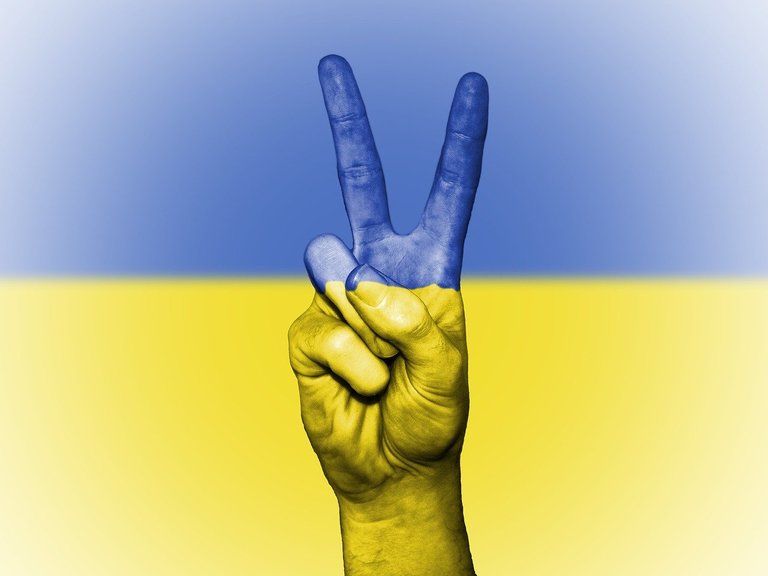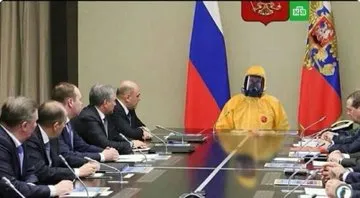The number one aim in war must always be peace - yet this aim is often forgotten quickly. So for those who have the luxury of not being in Ukraine, it is our duty to use our minds to think about how to create peace in Ukraine. What would peace look like? How could it happen? Who would need to change their thinking for peace to happen?

Wars often start for reasons that are questionable and difficult to understand, so stopping them can be very challenging. Once wars start, an almost endless list of new complaints and desires for revenge are stirred, leaving huge emotional, physical and psychological traumas that demand even more conflicts - as if this will solve the problems.
The longer a war carries on, the less clear the solutions become and the way toward peace can seem to only be a distant fantasy. This is where war becomes a way of 'life' and it can seem as if it cannot end until one side is totally spent and destroyed. The quicker that war ends, the more chance there is to heal the wounds that have been created.
The Russian leadership, including Putin and some of his close allies, are the main figures who need to change their thinking if war is to end quickly - since they are the ones who launched the invasion on a large scale. It is unclear whether there is anything that the Ukrainians can do to stop further destruction, beyond total surrender. Understandably, the Ukrainians do not want to do this, especially when they are unclear of what this would mean for them.
If we take Putin at his word, he is attempting to remove what he claims to be Nazi control of Ukraine, while pushing back against NATO expansion. Putin claims to be an angry neighbour, doing what is needed to clear up the neighbourhood from 'unwanted influences'. However, his language has often either been accidentally or deliberately lacking in detail, leading to him treating the word 'nationalist' and 'nazi' as if they are synonyms. This means that by his words, any Ukrainian who is patriotic could be considered a 'Nazi' and an enemy of Putin's Russia.
If Putin truly only wants to remove Nazis from power in Ukraine and end corruption, he has done a poor job of demonstrating this and has instead overtly attacked pretty much everyone in Ukraine. This is important because it means it is probably impossible for Ukrainians to 'hand over the Nazis', since Russian forces seem to class any Ukrainian seeking to defend their nation as Nazis.
Is it possible that the abuses of civilians by the Russian military are the result of poor communications and organization in their ranks? To some extent, yes, but not completely.
So it looks like Ukrainians either have to flee or fight to the death. Any sense of national pride is likely to result in them fighting Russians and probably being killed. In this way, Putin is attempting to destroy the Ukrainian national spirit - perhaps leaving the region a hollow shell that his people can then control.
All of this seems to imply that there isn't much that the Ukrainians can do to create a peace that feels good to them. If they surrender they will probably not feel good and not have real peace.
So the question then becomes: What will it take for Putin to change his mind and desire peace more than war?
The intense sanctions on Russia have no doubt put pressure on Putin to try to resolve the situation more quickly, but either his sense of grandiosity, egotism, attachment to national identity, greed or perhaps some kind of strange belief system is causing him to not back down and to instead seem to step up his agenda.
Putin looks a bit like someone who has hit a bee's nest with a big stick and is now tempted to destroy the entire nest in order to ward off any future encounter with a swarm of angry bees who now want revenge.
From the outside it is hard to know exactly how much support for Putin the Russian people have. There is a huge amount of obviously biased Russian propaganda on the web, but at the same time it is clear that a significant percentage of Russians do support Putin.
Factors that might motivate a change of mind in Putin include:
- Pressure from the Russian population to end the war. This could be threat of revolution, strikes or other mass action.
- Economic pressure. The war might just become too much of a burden financially due to sanctions or other reasons.
- Changes in personal outlook or psychology. Characters such as Putin are not known to have a change of 'heart' in these situations, but it is not impossible and might be the quickest route to change that doesn't involve nuclear destruction.
Knowing how much each of these possibilities might affect Putin is not straightforward, but we can at least use common human principles of psychology to analyse what might be driving him internally.
On the surface, he appears to be acting out a hidden form of 'fight or flight'. That is to say that he feels threatened (by NATO expansionism and perhaps the Nazi violence in Ukraine) and is lashing out, with no intention to 'flee' any time soon. Trained soldiers can overcome the fight or flight programming to some extent, but as long as someone is starting wars that could be avoided it seems a safe bet to say that they have not done this effectively.
While some outside of Russia view Putin as a criminal, he himself appears to view himself more as an international policeman, cleaning up the world stage, not unlike the planners of the US 'war on terror'. The fact that Putin doesn't seem to care about the similarities to the US 'war on terror' as he attempts to attack ideologically driven individuals by invading an entire country is alarming and perhaps suggests either mental illness or a deliberate strategy to lie to the world.
It is clear that Nazis in Ukraine really have been causing problems for Ukrainians and Russians alike, but a full scale invasion can hardly be said to be a valid solution to the problem, any more than burning down your neighbour's house is a rational response to them running over your pet dog. So Putin has clearly allowed his thinking to cross over into territory that most people would consider extreme and that seems to have skipped over alternative solutions.
How can Putin save face and even get what he wants, without continuing the war? This is presumably the goal of negotiations between Russian and Ukrainian agents.
It seems fair to assume that Putin, as a mega billionaire, doesn't experience life like an average person does. He likely has limited ability to relate to most of the population at this point. This explains, for example, his seemingly callous conscription of young men who were sent to fight without even knowing they were going to war. So it seems unlikely that compassion will be the deciding factor in any change of mind on his part. One thing Putin is not known for is love, smiles and compassion!
To many people, Putin appears to be someone who is very focused on presenting himself as a strong man and essentially a warrior. Such people have a history of getting many people killed unnecessarily as they attempt to fulfil irrational desires for status and to be given respect by other people - even if it has to come through fear. Often, all the posturing of warriors is rooted not in strength, but in low self worth that seeks to be seen as strong as a way to cover up real feelings.
While it may seem strange to say that one of the world's richest men has low self worth, we only need to look at his body language in interviews. He often holds his head like a scolded schoolboy and seems distant and almost expecting to be hurt physically or rejected. Often these patterns set in during childhood and form long-standing scars that are obvious to those who understand how they are formed.
It is unfortunate that what might most quickly cause a person of this type to change their mind is to give them a sense of acceptance and validation that can give them a deeper sense of trust and security in their global and personal situation. This could possibly have been given at one point in the past, but at this point it seems that Russia's actions have left most of the world with very little trust for Putin.
Increasing free speech in Russia could result in greater public pressure to end the war. Putin has been cracking down hard on dissenting voices and censoring media sources - most likely to prevent the population discovering how many Russians have died already, how many innocent civilians have been killed and how unnecessary the whole conflict really is.
It would be very interesting to find out what the people on Steem/Hive's sister chain in Russia, Golos, would have to say if Hive users were to confront them on these issues. Perhaps it is through the actions of those courageous people online who have the intent to cross bridges and divides between people that can evolve the situation before it is too late.

One thing is for sure, every person has their breaking point and in Putin's case it may be that the pressure has to come from inside Russia - since much like a suicide bomber, he appears to be caught up in a religious zeal and is only allowing information to affect him that comes from those within Russia who he considers trustworthy and equals.
UNSPUN is an independent source of news and revealing information that educates and inspires.
Subscribe, Upvote & Reblog on the Hive blockchain to support this channel.